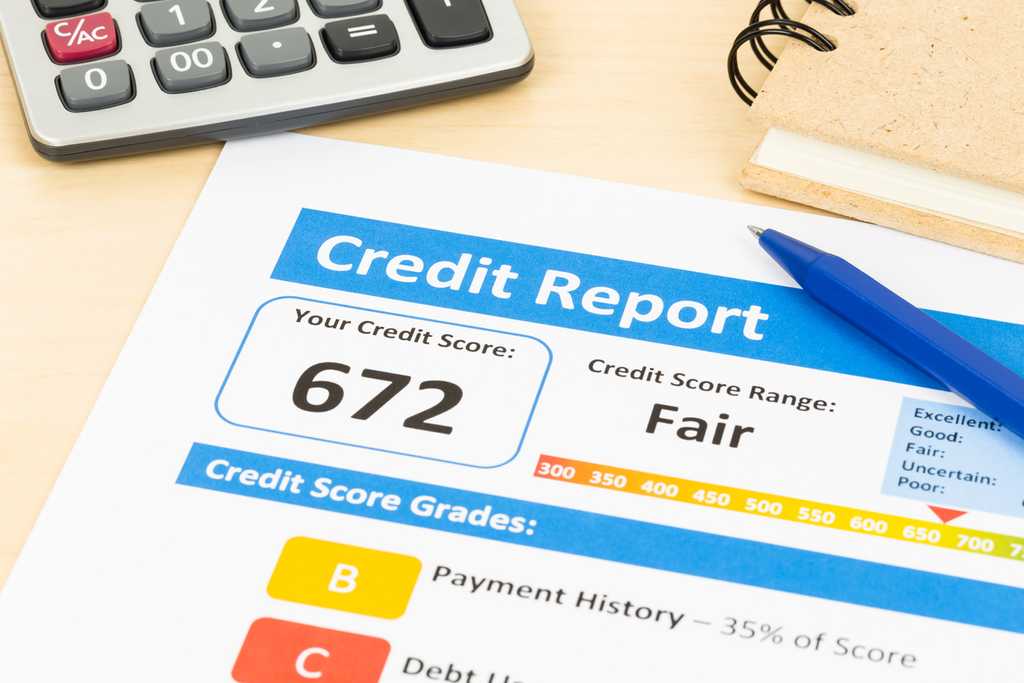With credit scores ranging from 300 to 850, you might wonder how you stack up. An excellent credit score can grant you access to premium credit cards and the lowest interest rates. A poor score can make borrowing money more challenging and more expensive. But what about a fair score? This article answers the questions: what is a fair credit score, what can you borrow with a fair credit score and, how can you improve a fair credit score?
Do I Have a Fair Credit Score?
Whether or not you’re deemed to have a fair credit score will partly depend on the credit scoring model you use – the FICO Score on the VantageScore.
The FICO Score is the most widely used credit score in the U.S. The majority of the top lending institutions use the FICO Score when determining who to lend money to. FICO Scores range from 300 to 850. A higher score signals a lower level of risk to lenders. Your FICO Score is considered fair if it falls between 580 and 669.
FICO Score ratings:
- Exceptional: 800+
- Very good: 740-799
- Good: 670-739
- Fair: 580-669
- Poor: 300-579
There are five factors used to calculate your FICO score, including:
- Payment history (35%). Do you pay your bills on time? A few late payments or a missed payment can really ding your credit score.
- Amounts owed (30%). How much of your available credit are you using? You want to try and keep your balance low so it doesn’t look like you’re overextending.
- Length of credit history (15%). The longer you’ve been responsibly using credit, the better.
- Credit mix (10%). Do you have a mix of credit cards, installment loans, or a mortgage? Lenders like to see some diversity.
- New credit (10%). A bunch of hard inquiries over a short amount of time doesn’t look good. Only apply for credit when you really need it.
VantageScore is another credit-scoring company founded by Experian, Equifax, and TransUnion – the three credit report agencies. VantageScores also range from 300 to 850. A fair score is between 601 and 660.
VantageScore ratings:
- Excellent: 781-850
- Good: 661-780
- Fair: 601-660
- Poor: 500-600
- Very poor: 300-499
VantageScore uses a slightly different scoring model than FICO to calculate its credit scores and assigns different levels of importance to various factors.
VantageScore’s levels of influence include:
- Extremely influential: Payment history
- Highly influential: Type and duration of credit and percent of credit limit used
- Moderately influential: Total balances/debt
- Less influential: Available credit and recent credit behavior and inquires
What Does a Fair Credit Score Mean?
According to recent data from Experian, the average FICO score in the U.S. is 714. A score of 714 is considered to be a good credit score. The average VantageScore in the U.S., according to Equifax is 698 – also a good credit score.
If you have a fair credit score, you’re sitting below the average American. A fair credit score is not a bad credit score and a good credit score is right on the horizon. With a little bit of hard work and discipline, there’s no stopping you from turning your fair score into a good or excellent score.
What Can I Apply for With Fair Credit?
Your credit score indicates to lenders how responsible you’ve been with your credit. They look to your past credit performance to predict your future credit performance. An excellent score helps lenders feel more confident that you will pay them back.
A poor credit score signals to lenders you might be more likely to default – which is why it can be more challenging and more expensive to secure a credit card or loan. With a fair credit score, you can still apply for credit but you’re likely to be limited in your options.
Credit Cards
While most top rewards and premium credit cards are only available to people who have good or excellent credit, there are still credit cards available to those with a fair score. By increasing your credit score, you will be eligible for more credit cards and a lower APR.
Mortgage
Your credit score is an important factor in determining if you can get approved for a mortgage. While it is possible to get a mortgage with a fair credit score, you will likely pay a higher interest rate or higher fees. To qualify for the best mortgage rates, take time to improve your credit score and save for a substantial downpayment.
Personal Loan
Again, it’s possible to get a personal loan with a fair credit score, but you likely won’t be offered the best rates. Before taking on a personal loan, carefully evaluate different lenders on interest rates, fees, and how much you can borrow.
Utilities
You can not be denied utilities if you have a fair credit score – or a poor credit score for that matter. But if your credit score isn’t high enough, you may have to pay an upfront security deposit.
If you know you’ll need access to credit in the future, but you don’t need it immediately, you might want to hold off until you can improve your score. Your options will really start to open up when you break into the good and excellent credit score territory.
How Can I Improve My Credit Score?
If you’re ready to boost your credit score, there are a few simple things you can do.
Pay Your Bills on Time, Every Time
Since your payment history accounts for the largest portion of your FICO Score, do your best to always pay your bills on time and in full. Automating your bill payments can help to avoid late or missed payments
Keep Your Credit Utilization Low
In other words, don’t max out your credit. If you have $10,000 in available credit and you’re using $9,900, this makes you look like you're overextending yourself. As a rule of thumb, you should aim to use no more than 30% of your available credit ($10,000 x .30 = $3,000). You can also consider asking for an increased credit limit on your credit card. This can immediately improve your credit utilization ratio by adding more available credit. However, this strategy only works if you keep your balance low.
Don’t Close Old credit Cards
While you might consider closing an old credit card to avoid the temptation of using it, try not to. Remember, 15% of your FICO score is for credit history, and lenders look more favorably on a long history. Closing an old credit card can also reduce your available credit and increase your credit utilization ratio.
Limit Hard Inquiries
When you apply for a credit card, loan, or mortgage, the lender will typically do a hard inquiry. Hard inquiries affect your credit score. If you have a bunch of hard inquiries in a short amount of time this can lower your score.
Monitor Your Credit Report
If your goal is to improve your credit score from fair to good and then excellent, it’s important to track your progress. Without regularly checking your credit report you won’t know if you're heading in the right direction. When you check your report, make sure you are using a soft inquiry so you don’t negatively impact your score.
Moving From Fair to Good and Excellent
Moving from a fair credit score to a good credit score is totally possible. Your credit score is not fixed, it can change and improve. By employing a few of these credit-building strategies, it’s only a matter of time before you can make the move from fair to good, and beyond.

